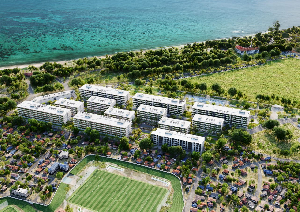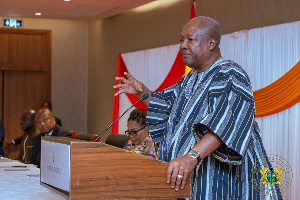According to an estimate based on a report by the World Bank and the International Monetary Fund, Africa will need about US$12 billion to both procure and distribute sufficient numbers of COVID-19 vaccines to attain adequate protection against the virus that would see an end to the compounded devastating effects of the pandemic on the continent.
The report argues for a further extension of the Group of 20’s debt service moratorium through to the year’s end -- noting in particular, the continued high liquidity needs of developing countries and their deteriorating debt sustainability outlooks.
In addition, it states that the estimated financial sum the African continent will need to curb coronavirus transmission is about the same as the total amount of official debt service payments already deferred by 45 of the most economically challenged nations participating in the G20’s Debt Service Suspension Initiative (DSSI).
Sub-Saharan #Africa Poised For Strong Recovery Sub-Saharan Africa’s prospects for recovery are strengthening amid actions to contain new waves of the pandemic and speed up vaccine roll-outs, according to the World Bank’s... https://t.co/cW60fSmZVv via @263Chat #Zimbabwe #263Chat pic.twitter.com/ublkvA01cc
— 263Chat.com ???????? (@263Chat) March 31, 2021
Nevertheless, according to the World Bank’s latest biannual economic analysis for Sub-Saharan Africa, economic growth in Sub-Saharan Africa is estimated to have contracted by 2.0% in 2020 -- closer to the lower bound of the forecast in April 2020.
The analysis also finds that prospects for recovery are strengthening amid actions to contain new waves of the pandemic and speed up vaccine rollouts.
The document also shows that African countries are not wasting the opportunity from the COVID-19 crisis as they are increasingly adopting digital technologies to boost productivity in current jobs and increase employment opportunities -- particularly for women and youth.
To unlock the full benefits of a digital economy, the report recommends policies that accompany investments in digital infrastructure -- such as a regulatory framework that fosters competition and innovation in telecommunications, provision of reliable and affordable electricity, investment in education and upgrading the skills of informal workers.
As ???? finance leaders meet for the @WorldBank-@IMFNews Spring + #G20 Fin Min meetings, they must capitalise on the current momentum and step up for Africa's economic recovery. Over $42 billion is at stake based on decisions they'll make over the next 3 months. ⬇️ #SpringMeetings pic.twitter.com/PdbKtDqBqs
— ONE (@ONECampaign) April 5, 2021
The report also predicts that the COVID-19-induced recession is less severe than earlier anticipated. However, economic recovery will vary significantly across countries and sub-regions
Sub-Saharan Africa, home to more than 1 billion people -- half of whom will be under 25 years old by 2050, is a diverse continent offering human and natural resources that have the potential to yield inclusive growth and wipe out poverty in the region.
Real all-around potential that could enable Africans across the continent to live healthier and more prosperous lives.
With the world’s largest free trade area and a 1.2 billion-person market, the continent is creating an entirely new development path, harnessing the potential of its resources and people.













